 |
Charles Baroud Charles Baroud is professor of Mechanics at Ecole Polytechnique, where he founded the microfluidics research activity in 2002. Since 2018, he also heads a joint research unit at Institut Pasteur (Paris), working at the interface between engineering, physics, and biology. His work at Polytechnique initially focused on multiphase fluid flows in microfluidics, using a mixed experimental and theoretical approach. This work has led to new fundamental insights on drop and bubble dynamics in complex geometries, as well as to the invention of a unique toolbox for droplet production and manipulation. More recently, the research focus has shifted, thanks in part to an ERC starting grant, to applying the droplet methods to address problems in quantitative biology. Typical biological questions that are studied revolve around quantifying the variability between individual cells and on their interactions, and on the emergence of population-scale behavior as a result of this variability. Examples include studying immune-cancer interactions, the variability in response of bacteria to antibiotics, or building 3D micro-tissues to mimic in vivo biology. The early droplet microfluidics work has been transferred to a spinoff company, Stilla Technologies, while the cell interaction work is currently being incubatied in view of spinning off a second startup. Prior to his faculty position, Charles Baroud obtained an undergraduate degree at MIT and a PhD at the University of Texas, Austin, both at the interface between Physics and Mechanical Engineering, followed by a post-doc at Ecole Normale Superieure in Paris. |
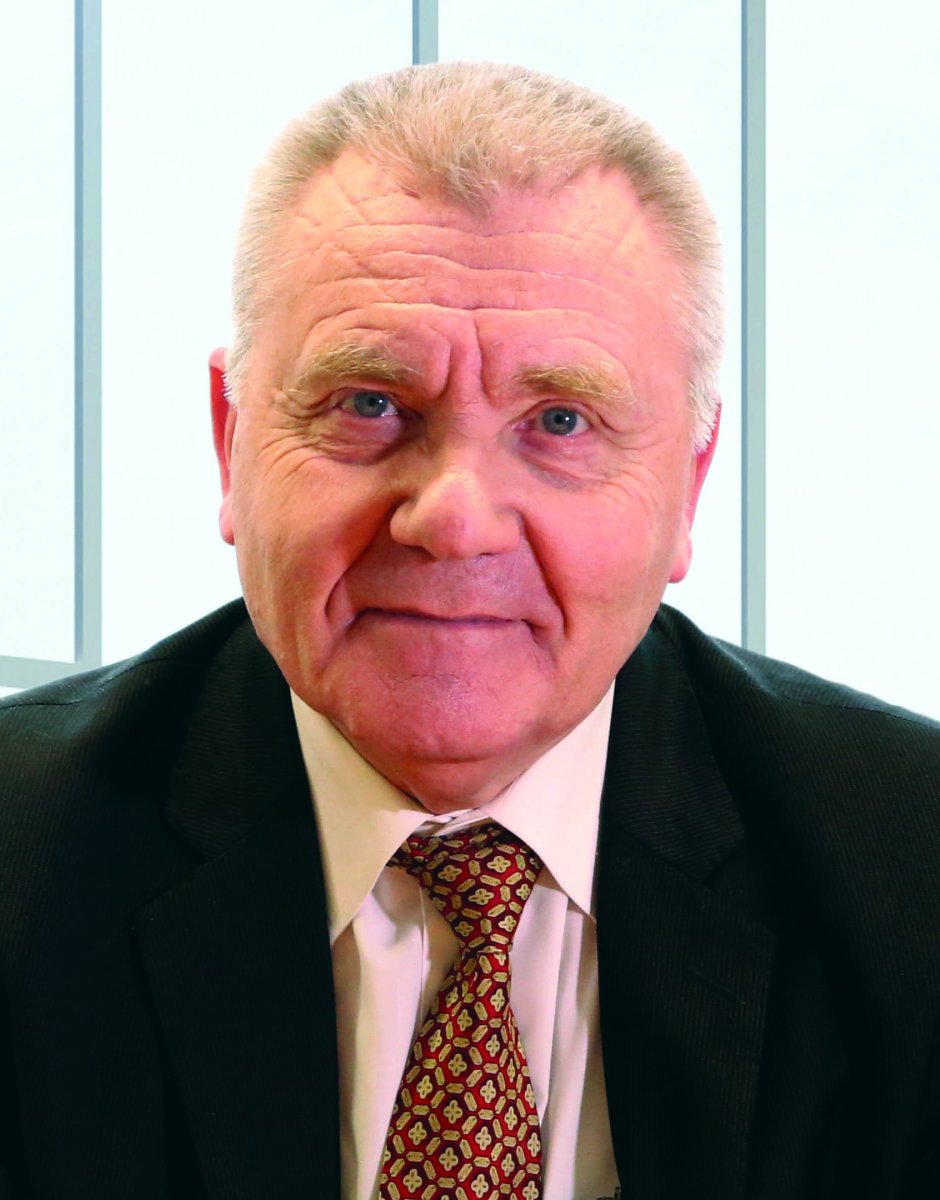 |
Jean-Pierre Bourguignon Professor Jean-Pierre Bourguignon is President of the European Research Council since January 2014. He was the Director of the Institut des Hautes Études Scientifiques (IHÉS) from 1994 till 2013. This international research institute located near Paris, France, was built as the European counterpart of the Institute for Advanced Study in Princeton, US. Prof. Bourguignon was also the first ERC Panel Chair in Mathematics for Starting Grants. A mathematician by training, he spent his whole career as a fellow of the Centre National de la Recherche Scientifique (CNRS). He held a Professor position at École polytechnique from 1986 to 2012. From 1990 to 1992, he was President of the Société Mathématique de France and President of the European Mathematical Society from 1995 to 1998. He is a former member of the Board of the EuroScience organisation (2002-2006) and served on EuroScience Open Forum (ESOF) committees since 2004. Prof. Bourguignon received the Prix Paul Langevin in 1987 and the Prix du Rayonnement Français in Mathematical Sciences and Physics from the Académie des Sciences de Paris in 1997. He is a foreign member of the Royal Spanish Academy of Sciences. In 2005, he was elected honorary member of the London Mathematical Society and has been the secretary of the mathematics section of the Academia Europaea. In 2008, he was made Doctor Honoris Causa of Keio University, Japan, and, in 2011, Doctor Honoris Causa of Nankai University, China. |
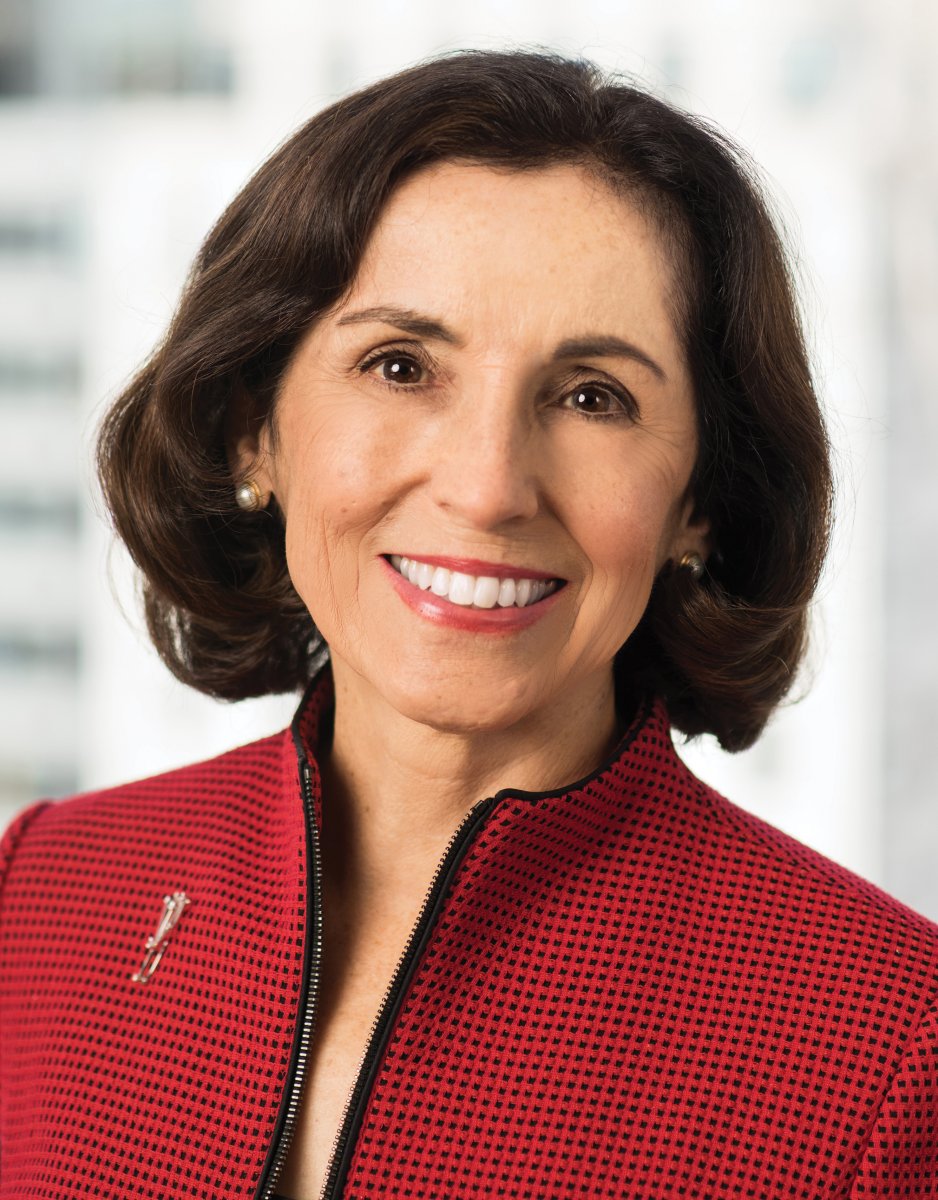 |
France A. Córdova France A. Córdova is an astrophysicist and the 14th Director of the National Science Foundation (NSF). She was nominated to this position by the President of the United States in 2013 and subsequently confirmed by the U.S. Senate. NSF is a $8.1B independent federal agency; it is the only government agency charged with advancing all fields of scientific discovery, technological innovation, and STEM education. Dr Córdova has been a leader in science, engineering and education for more than three decades. She has a distinguished career in both higher education and government; her contributions in multi-spectrum research on x-ray and gamma ray sources and space-borne instrumentation have made her an internationally recognized astrophysicist. She is president emerita of Purdue University, chancellor emerita of the University of California, Riverside and former vice chancellor for research at the University of California, Santa Barbara. She also served as NASA's chief scientist and is a recipient of the agency's highest honor, the Distinguished Service Medal. Prior to joining NASA, Dr Córdova was the astronomy department head at Penn State and deputy group leader at Los Alamos National Lab. She received her B.A. from Stanford University and her Ph.D. in physics from the California Institute of Technology. |
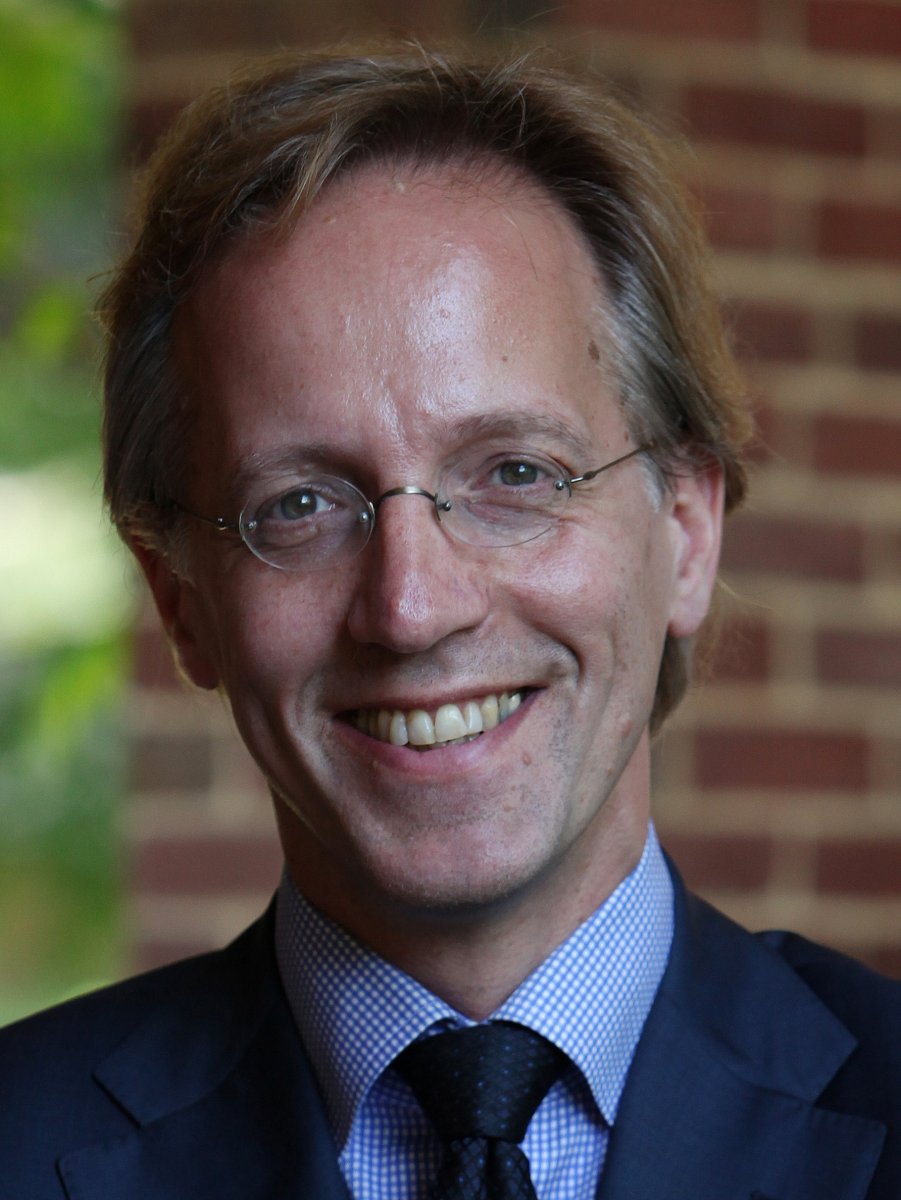 |
Robbert Dijkgraaf
Robbert Dijkgraaf is Director and Leon Levy Professor of the Institute for Advanced Study (2012–current), one of the world’s foremost centers for curiosity-driven basic research, located in Princeton, New Jersey. |
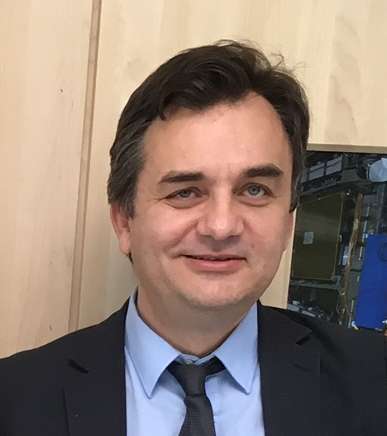 |
Tome Antičić
Dr. Tome Antičić became in 2017 the State Secretary for science and EU funds at the Croatian Ministry of Science and Education. His main tasks are to reform the structural funds system in Croatia concerning science, and to implement new science bylaws that emphasize excellence, project success, mobility, and a much closer interaction between science and high-tech industry. |
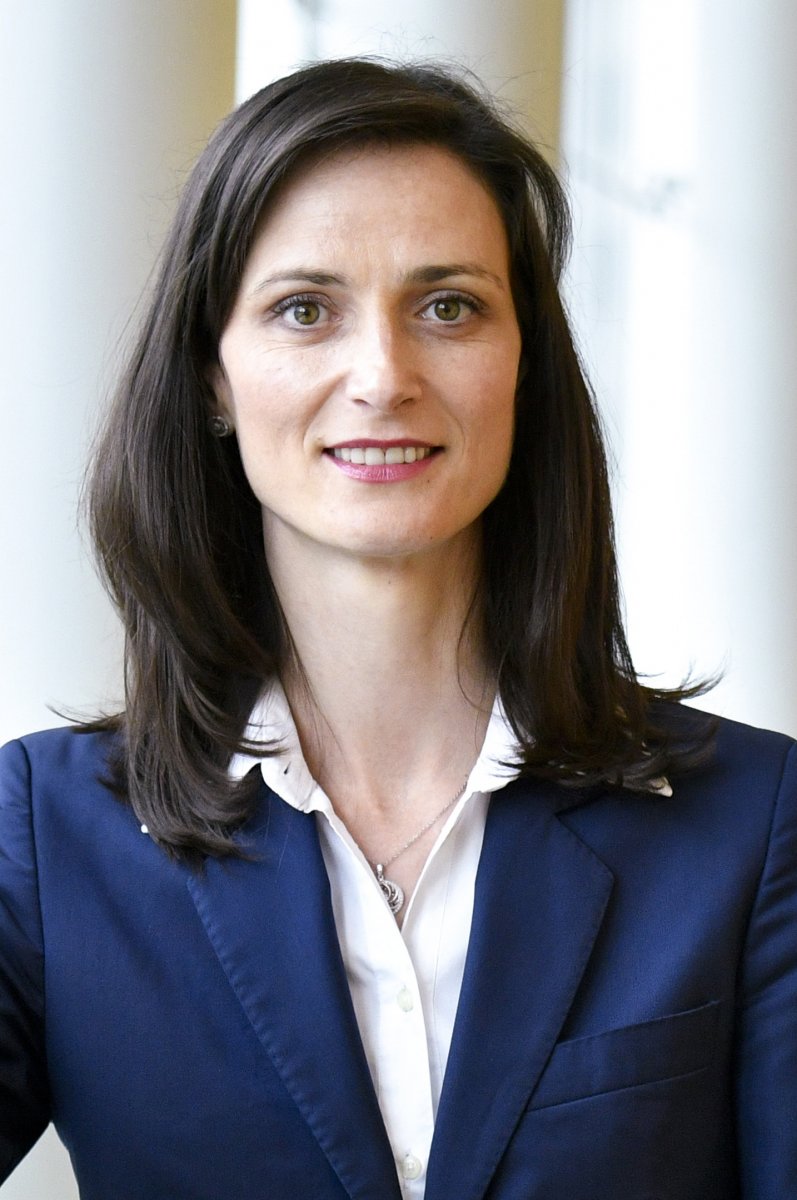 |
Mariya Gabriel Mariya Gabriel is the current European Commissioner for Digital Economy and Society and Commissioner-designate for Innovation and Youth in the 2019-2023 Commission. She was the Vice-President of the EPP Group in the European Parliament in 2014-2017. Mariya Gabriel was a Member of the European Parliament, EPP/GERB (Citizens for European Development of Bulgaria) in 2009-2017. Since 2012, Mariya Gabriel has served as Vice-President of EPP Women. Prior to this she was Parliamentary Secretary to MEPs from the GERB political party within the EPP Group in 2008-2009. She is part of project teams, such as Digital Single Market, Energy Union, Better Regulation and Interinstitutional Affairs, Budget and Human Resources, and Jobs, Growth, Investment and Competitiveness. As a member of the project teams, her responsibilities include launching ambitious proposals for the completion of a connected Digital Single Market, supporting the development of creative industries and of a successful European media and content industry, as well as other activities turning digital research into innovation success stories. |
 |
Eva Kaili Eva Kaili Member of the European Parliament, Chair of the Science and Technology Panel (STOA), Member of the Industry, Research and Energy Committee (ITRE) and of the Budgets committee (BUDG). Eva Kaili is a Member of the European Parliament, part of the Hellenic S&D Delegation since 2014. She is the Chair of the Future of Science and Technology Panel in the European Parliament (STOA), Member of the Industry, Research and Energy Committee (ITRE) and of the Budgets committee (BUDG). In her capacity, she has been working intensively on promoting innovation as a driving force of the establishment of the European Digital Single Market. She has been the draftsperson of multiple pieces of legislation in the fields of blockchain technology, online platforms, big data, fintech, AI and cybersecurity, as well as the ITRE draftsperson on Juncker plan EFSI2 and more recently the Invest EU program. She is the founder of Future Forum, a network of influential politicians, officials and public figures promoting innovation. As a high ranking and influential MEP she is often invited to talk for her work in important conferences and academic institutions worldwide. She has also been the Chair of the Delegation to the NATO PA in the European Parliament, focusing on Defence and Security of Europe. Prior to that, she was elected Member of the Hellenic Parliament in 2007-2012, with the PanHellenic Socialist Movement (PASOK). She also worked as a journalist and newscaster prior to her political career. She holds a Bachelor degree in Architecture and Civil Engineering, and a Postgraduate degree in European Politics. |
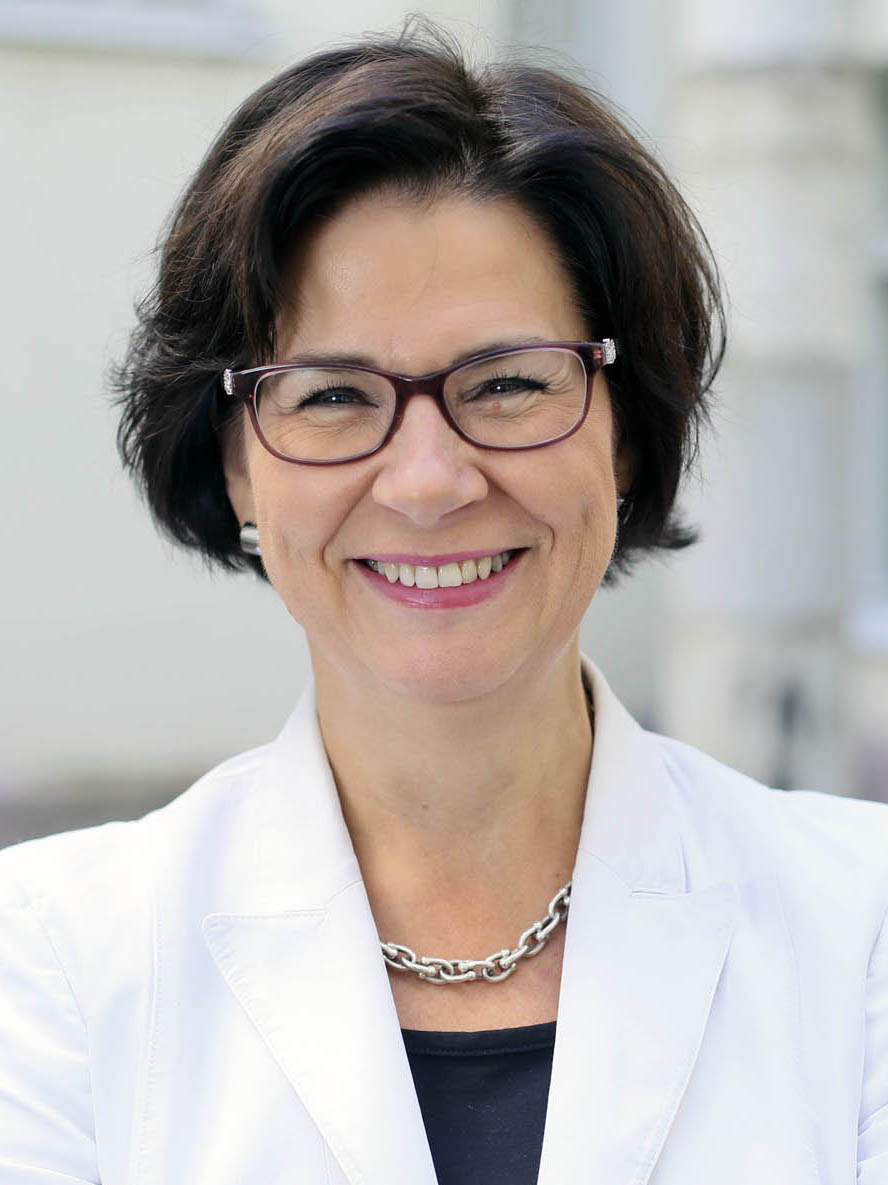 |
Anita Lehikoinen Anita Lehikoinen was appointed Permanent Secretary of Ministry of Education and Culture on 1 May 2013. She is head of operations of the Ministry in cooperation with the Ministers and leads the implementation of the Government programme within the Ministry´s administrative sector. She supervises the internal functions of the Ministry and plays a significant role in preparing the Ministry to respond to future challenges. Anita Lehikoinen has been employed with the Finnish Ministry of Education since 1989. Prior to her current position, she served as Director General in the Ministry, in charge of higher education and science policy development. She has also worked in the field of higher education, and was responsible for the implementation of the Bologna process in Finland and internationalisation strategy for higher education, among other things. She has also been involved in work to reform the steering system of Finnish universities and has served in many national and European committees in the field of higher education, research and internationalisation. She holds an M.A. degree from the University of Helsinki (1987). |
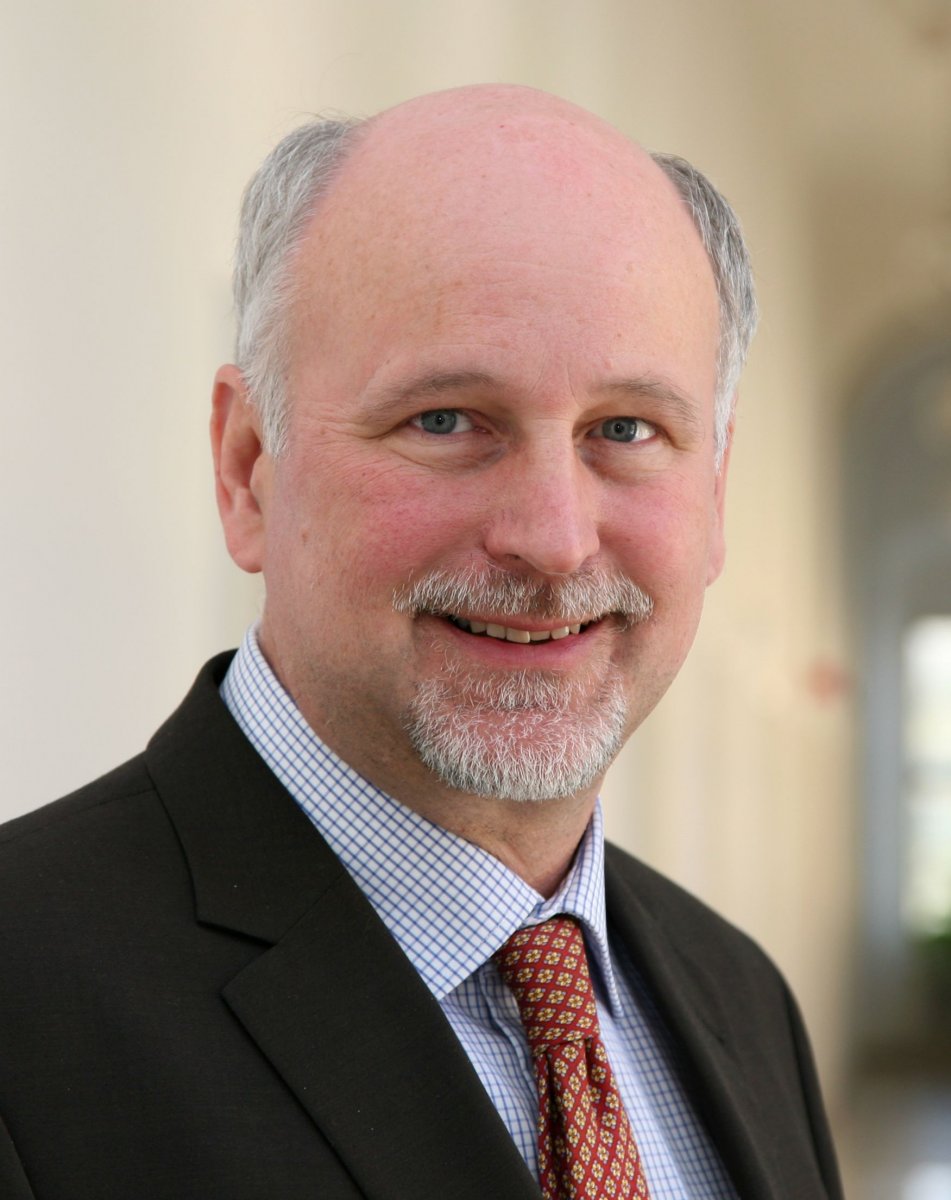 |
Wolfgang Lutz Wolfgang Lutz is the Founding Director of the Wittgenstein Centre for Demography and Global Human Capital, a cooperation between University of Vienna (where he is Professor at the Department of Demography), IIASA (where he directs the World Population Program), and the Austrian Academy of Sciences (where he is Scientific Director of the Vienna Institute of Demography). He holds a PhD in Demography from the University of Pennsylvania. He has widely published on international population trends with a special focus on population forecasting, population-development-environment interactions and introducing education as a standard demographic dimension in addition to age and sex. He has published over 260 scientific articles, including 13 in Science and Nature. His most recent book is entitled “Demographic and Human Capital Scenarios for the 21st Century: 2018 Assessment for 201 Countries.” He has won prestigious awards including two ERC Advanced Grants, the Wittgenstein Prize, the Mattei Dogan award of the IUSSP and the Mindel C. Sheps Award of PAA. He is member of the Austrian Academy of Sciences, the Leopoldina, the World Academy of Sciences (TWAS), the Finnish Society for Sciences and Letters, the US National Academy of Sciences (NAS), and the Academia Europea. |
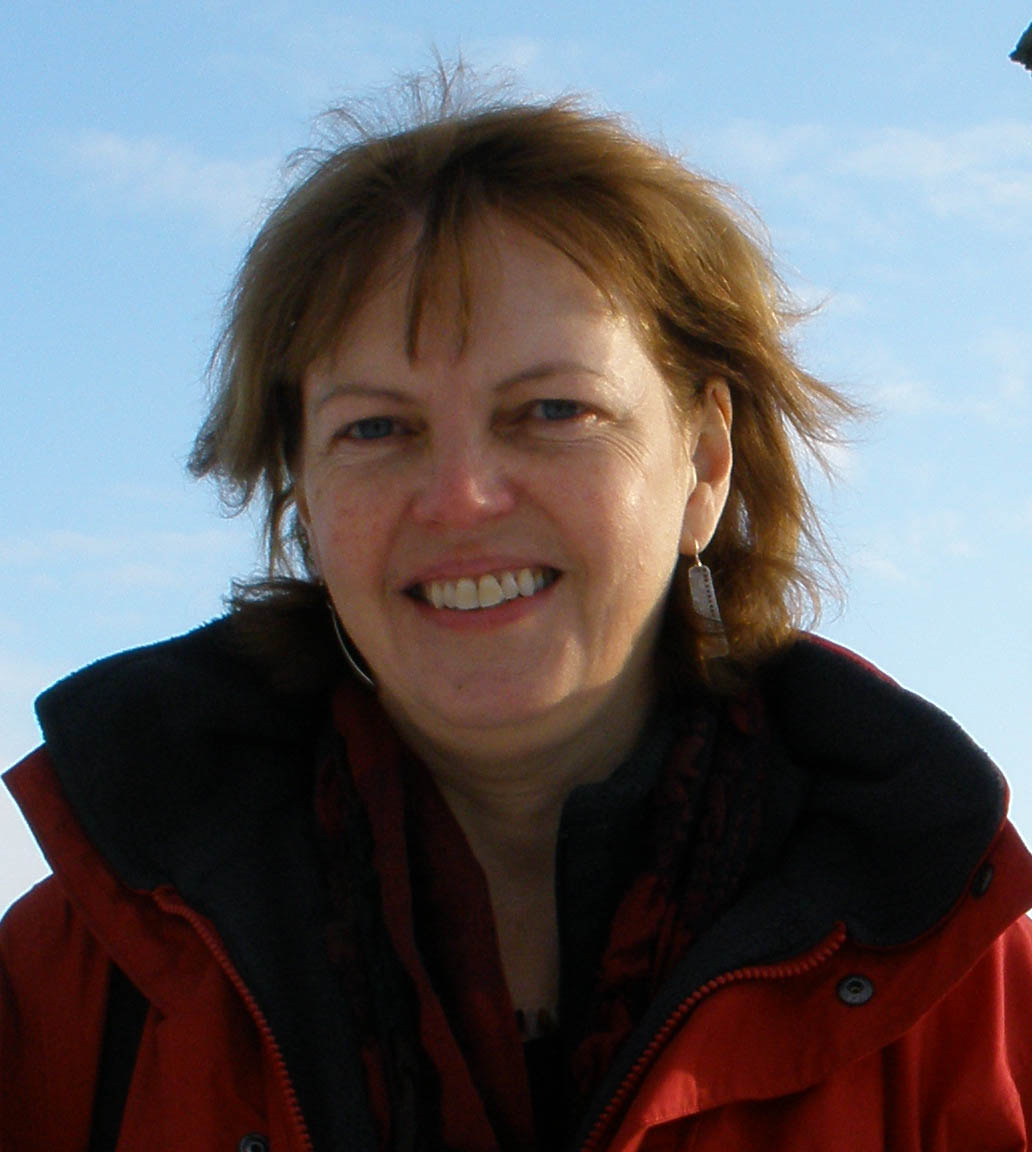 |
Anne Magurran Anne Magurran’s research interests focus on biological diversity – its measurement, evolution, maintenance and conservation. Ever since her PhD on Irish woodlands at the University of Ulster she has been interested in how to measure biological diversity as shown by her most recent book on the topic “Biological Diversity: Frontiers in Measurement and Assessment”. Her ERC project BioTIME (Biological diversity in an inconstant world: temporal turnover in modified ecosystems) was concerned with how biological diversity is changing over time. It addressed this question in two ways: by compiling the BioTIME database (biotime.st-andrews.ac.uk) of ecological assemblage time series, that is assemblage around the world that have been monitored over a number of years using the same methodology; and through field work to quantify biodiversity change in freshwater ecosystems in the Caribbean island of Trinidad. The BioTIME database, which now contains data from over 600,000 localities across the Earth, is showing that the world’s ecosystems are being restructured at rates that exceed the predictions of the best ecological theory we have. These findings are mirrored in the detailed field surveys of tropical rivers. Together they alert researchers to the rapid compositional reorganisation occurring in ecosystems and highlight fundamental and applied challenges for biodiversity scientists. Thanks to ERC Proof-of-Concept grant BioChange (Biodiversity Change: an open access data resource supporting societal responses to the biodiversity crisis), the BioTIME database is now open access and free to anyone, anywhere in the world, to use for research, education or conservation. |
 |
Sarah Mc Cormack Sarah Mc Cormack is an Associate Professor in the Dept of Civil, Structural and Environmental Engineering at Trinity College Dublin and lead PI in the Solar Energy Applications Group. She graduated from University of Ulster with a PhD in Solar Engineering collaborating with Imperial College London, Saint Gobain and BPSolar. She continued her research at the Dublin Institute of Technology as a Research Fellow where she was involved in the development Trinity College in 2009 and became a Fellow of the College in 2016. She has been working in the areas of solar energy and thermal energy research for over 15 years and has published over 100 publications. She has supervised 14 students to completion and her team currently consists of 2 post docs and 4 PhD researchers. She has worked on EU projects based on luminescent solar devices, evacuated glazing and adaptable facades and phase change materials for energy storage (from FP5 – H2020) and has been awarded national funding (from HEA, SEAI, SFI, EPA, Enterprise Ireland) and EU funding (COST, H2020). She has also investigated acceptance of renewable energy generation and identified a comprehensive review of the drivers for sustainable behaviour and transition of communities. She is a current recipient of an ERC Starter Grant (until 2021) and was recently successful in obtaining H2020 funding to coordinate a 14-partner project IDEAS (2019-2022), based on the integration of renewable energy technologies in a more holistic and integrated manner in buildings. |
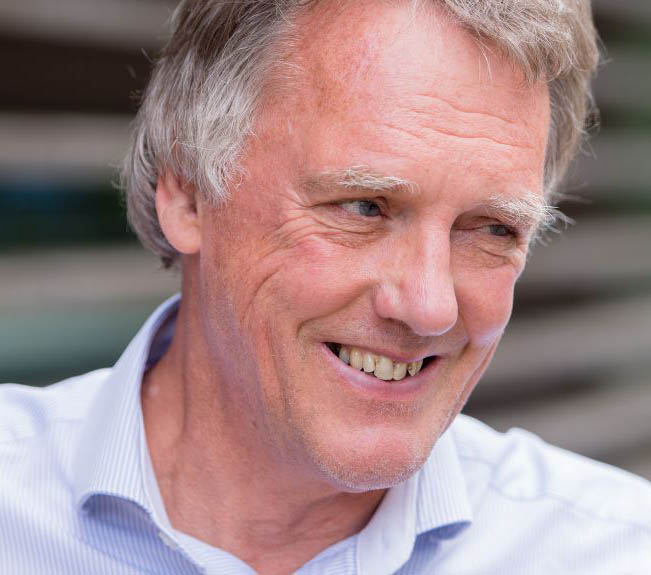 |
Sir Peter J. Ratcliffe Sir Peter J. Ratcliffe is a Director for the Target Discovery Institute within the Nuffield Department of Medicine, University of Oxford and is a practicing clinician at the John Radcliffe Hospital, Oxford. In 2008, Sir Peter J. Ratcliffe was awarded an ERC Advanced Grant (as co-principal investigator), worth EUR 3 million over five years, together with Christopher J. Schofield. He is a Professor of Medicine and is a member of the Ludwig Institute for Cancer Research. Sir Peter was announced as a winner of the Nobel Prize Physiology or Medicine 2019 alongside William G. Kaelin Jr. of Harvard University and Gregg L. Semenza of Johns Hopkins University. Together they discovered the key mechanisms that our cells use to detect and respond to low oxygen levels, known as 'hypoxia'. Sir Peter's current research is investigating hypoxia and the role it plays in a variety of health conditions, including heart disease, metabolic diseases and cancer, particularly in kidney cancer which could lead to potential new cancer treatments. In 1978, Ratcliffe moved to Oxford where he trained in renal medicine at Oxford University, with a particular focus on renal oxygenation. In 1989 he founded a new laboratory in Oxford at the MRC Weatherall Institute of Molecular Medicine, obtaining a Senior Fellowship from the Wellcome Trust to work on cellular oxygen sensing pathways. The lab explored the regulation of erythropoietin – a hormone responsible for stimulating the production of red blood cells, known to be turned on in kidney cells following oxygen deprivation. The Ratcliffe group helped to uncover a detailed molecular chain of events that cells use to sense oxygen. This same pathway is also disrupted in many tumours, allowing them to create new blood vessels to sustain their growth. Much of our current understanding of hypoxia has emerged from the laboratory of Ratcliffe. Sir Peter was the Head of the Nuffield Department of Medicine at the University of Oxford 2004-2016. Since 2016 he has been the director of the Target Discovery Institute, University of Oxford, and Clinical Research Director at the Francis Crick Institute. He is a Fellow at Magdalen College, Oxford. |
 |
David Sassoli David Sassoli was born in Florence (Italy) in 1956. From an early age, he began working as a journalist for small newspapers and news agencies, then moved on to the newspaper Il Giorno. His career as a news reporter began in 1992 as a news correspondent for TG3. Subsequently he worked on other information programs on Rai Uno and Rai Due and in 1999 entered in the editorial staff of TG1, as a special correspondent. In the following 10 years his commitment was focused on the management of the main editions of the news and on big national and international events. In 2007 he became deputy director of TG1. On 7 June 2009, he was elected MEP for the Democratic Party. In the 2009-2014 legislature he held the position of head of delegation of the PD. In 2014, he run for European election again and obtained more than 200 000 preferences. On 1 July of the same year, he was elected Vice-President of the European Parliament with responsibilities for Mediterranean Policy, Budget and buildings. On 26 May 2019 he was elected for the third time as a member of the European Parliament and on 3 July he was elected President of the European Parliament. |
 |
Subra Suresh Subra Suresh is the President and a Distinguished University Professor at Nanyang Technological University, Singapore. He has previously served as: Dean of Engineering and Vannevar Bush Professor of Engineering at MIT; Director of National Science Foundation (NSF), a position to which he was nominated by the President of the United States and unanimously confirmed by the US Senate; and President of Carnegie Mellon University. President Suresh has authored three books, more than 300 research articles and 26 patent applications, and has co-founded a technology start-up. His research has focused on the properties of engineered and biological materials and their implications for human diseases. President Suresh is a member of all three branches of the US National Academies – Engineering, Sciences and Medicine. He has also been elected to the American Academy of Arts and Sciences and the National Academy of Inventors, and as a foreign member of science academies in China, France, Germany, India, and Spain. He has been awarded 18 honorary doctorate degrees from institutions in USA, UK, China, India, Sweden, Spain, Switzerland, South Korea, Greece and Russia. He is an independent Director of the Boards of HP Inc., California, and Singapore Exchange, and a member of the Boards of NRF and A*STAR, Singapore. |

